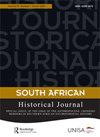Guerilla Radios in Southern Africa. Broadcasters, Technology, Propaganda Wars, and the Armed Struggle
IF 1
3区 历史学
Q1 HISTORY
引用次数: 3
Abstract
Guerrilla Radios makes an original and important contribution to the literature on southern Africa’s liberation struggles. The collected essays showcase the work of both new and established writers to argue that radio broadcasting was a crucial weapon in the armoury of liberation movements, especially while they were operating in exile. Zimbabwean liberation broadcasting (or ‘guerrilla radios’) dominates the book, but there are also chapters on South African, Namibian, Angolan and Mozambican radio stations in the period from the 1960s to the early 1990s. The authors clearly demonstrate that political elites on both sides of the liberation divide put great emphasis on control of the media and shared a belief in the importance of winning the war for hearts and minds. They argue that the media war was every bit as important as the military conflict between African nationalism and settler colonialism, which has so far received far more attention from historians. The settler media machine maintained ostensible dominance throughout the period in the form of generously funded state broadcasters such as Radio Republic South Africa, as illustrated by Sifiso Mxolisi Ndlovu’s chapter. Although it is not discussed here, the same was true of the press. But Guerrilla Radios argues persuasively that the radio stations set up in exile by anti-colonial liberation movements and run on a shoestring had an impact that went far beyond their limited technical and budgetary firepower. Listeners to guerrilla radio stations recall that although they often struggled to get a good signal and lived in fear of being caught, hearing subversive voices or even just strains of machine gun fire – the signature of the African National Congress (ANC)’s Radio Freedom – was enough to revive their spirits in the darkest of times. TshepoMoloi’s chapter on Radio Freedom and Black Consciousness uses oral history interviews and published memoirs to give a rich account of the psychological impact of hearing liberated voices on the airwaves, sometimes persuading young South Africans to join uMkhonto we Sizwe (MK) in exile in the wake of the Soweto uprising and repression of 1976–1977. An MK veteran, Wonga Welile Bottoman, recalls how南部非洲的游击队无线电。广播、技术、宣传战和武装斗争
游击队电台对有关南部非洲解放斗争的文学做出了独创性的重要贡献。这些散文集展示了新作家和老牌作家的作品,他们认为广播是解放运动武器库中的一个关键武器,尤其是在他们流亡期间。津巴布韦解放广播(或“游击队广播”)在本书中占据主导地位,但也有关于20世纪60年代至90年代初南非、纳米比亚、安哥拉和莫桑比克广播电台的章节。作者清楚地表明,解放分歧双方的政治精英都非常重视对媒体的控制,并共同相信赢得这场战争对心灵的重要性。他们认为,媒体战争与非洲民族主义和定居者殖民主义之间的军事冲突一样重要,迄今为止,这场冲突受到了历史学家的更多关注。正如Sifiso Mxolisi Ndlovu的章节所示,定居者媒体机器在整个时期以慷慨资助的国家广播公司的形式保持着表面上的主导地位,如南非共和国电台。虽然这里没有讨论,但新闻界也是如此。但游击队电台(Guerrilla Radios)令人信服地辩称,反殖民解放运动在流亡期间建立的、以小本经营的电台所产生的影响远远超出了其有限的技术和预算火力。游击队电台的听众回忆说,尽管他们经常很难获得好的信号,并生活在被抓住的恐惧中,但听到颠覆性的声音,甚至只是机关枪的射击声——非洲人国民大会(ANC)无线电自由的签名——足以在最黑暗的时代重振他们的精神。TshepoMoloi关于无线电自由和黑人意识的章节利用口述历史采访和出版的回忆录,丰富地描述了在广播中听到解放声音的心理影响,有时说服南非年轻人加入1976年至1977年索韦托起义和镇压后流亡的uMkhonto we Sizwe(MK)。MK老将Wonga Welile Bottoman回忆起
本文章由计算机程序翻译,如有差异,请以英文原文为准。
求助全文
约1分钟内获得全文
求助全文
来源期刊

South African Historical Journal
Multiple-
CiteScore
0.70
自引率
0.00%
发文量
37
期刊介绍:
Over the past 40 years, the South African Historical Journal has become renowned and internationally regarded as a premier history journal published in South Africa, promoting significant historical scholarship on the country as well as the southern African region. The journal, which is linked to the Southern African Historical Society, has provided a high-quality medium for original thinking about South African history and has thus shaped - and continues to contribute towards defining - the historiography of the region.
 求助内容:
求助内容: 应助结果提醒方式:
应助结果提醒方式:


